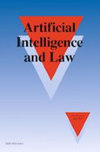Artificial Intelligence And LawSCIESSCI
國際簡稱:ARTIF INTELL LAW 參考譯名:人工智能與法律
- 基本信息:
- ISSN:0924-8463
- E-ISSN:1572-8382
- 是否OA:未開放
- 是否預(yù)警:否
- TOP期刊:是
- 出版信息:
- 出版地區(qū):NETHERLANDS
- 出版商:SPRINGER
- 出版語言:English
- 出版周期:4 issues per year
- 研究方向:Multiple
- 評價(jià)信息:
- 影響因子:3.1
- CiteScore指數(shù):9.5
- SJR指數(shù):1.501
- SNIP指數(shù):3.467
- 發(fā)文數(shù)據(jù):
- Gold OA文章占比:40.82%
- 研究類文章占比:97.44%
- 年發(fā)文量:39
- 自引率:0.2682...
- 開源占比:0.4066
- 出版撤稿占比:0
- 出版國人文章占比:0
- OA被引用占比:0.3902...
英文簡介Artificial Intelligence And Law期刊介紹
Artificial Intelligence and Law is an international forum for the dissemination of original interdisciplinary research in the following areas: Theoretical or empirical studies in artificial intelligence (AI), cognitive psychology, jurisprudence, linguistics, or philosophy which address the development of formal or computational models of legal knowledge, reasoning, and decision making. In-depth studies of innovative artificial intelligence systems that are being used in the legal domain. Studies which address the legal, ethical and social implications of the field of Artificial Intelligence and Law.
Topics of interest include, but are not limited to, the following: Computational models of legal reasoning and decision making; judgmental reasoning, adversarial reasoning, case-based reasoning, deontic reasoning, and normative reasoning. Formal representation of legal knowledge: deontic notions, normative
modalities, rights, factors, values, rules. Jurisprudential theories of legal reasoning. Specialized logics for law. Psychological and linguistic studies concerning legal reasoning. Legal expert systems; statutory systems, legal practice systems, predictive systems, and normative systems. AI and law support for legislative drafting, judicial decision-making, and
public administration. Intelligent processing of legal documents; conceptual retrieval of cases and statutes, automatic text understanding, intelligent document assembly systems, hypertext, and semantic markup of legal documents. Intelligent processing of legal information on the World Wide Web, legal ontologies, automated intelligent legal agents, electronic legal institutions, computational models of legal texts. Ramifications for AI and Law in e-Commerce, automatic contracting and negotiation, digital rights management, and automated dispute resolution. Ramifications for AI and Law in e-governance, e-government, e-Democracy, and knowledge-based systems supporting public services, public dialogue and mediation. Intelligent computer-assisted instructional systems in law or ethics. Evaluation and auditing techniques for legal AI systems. Systemic problems in the construction and delivery of legal AI systems. Impact of AI on the law and legal institutions. Ethical issues concerning legal AI systems. In addition to original research contributions, the Journal will include a Book Review section, a series of Technology Reports describing existing and emerging products, applications and technologies, and a Research Notes section of occasional essays posing interesting and timely research challenges for the field of Artificial Intelligence and Law. Financial support for the Journal of Artificial Intelligence and Law is provided by the University of Pittsburgh School of Law.
期刊簡介Artificial Intelligence And Law期刊介紹
《Artificial Intelligence And Law》是一本社會學(xué)優(yōu)秀雜志。致力于發(fā)表原創(chuàng)科學(xué)研究結(jié)果,并為社會學(xué)各個(gè)領(lǐng)域的原創(chuàng)研究提供一個(gè)展示平臺,以促進(jìn)社會學(xué)領(lǐng)域的的進(jìn)步。該刊鼓勵(lì)先進(jìn)的、清晰的闡述,從廣泛的視角提供當(dāng)前感興趣的研究主題的新見解,或?qū)彶槎嗄陙砟硞€(gè)重要領(lǐng)域的所有重要發(fā)展。該期刊特色在于及時(shí)報(bào)道社會學(xué)領(lǐng)域的最新進(jìn)展和新發(fā)現(xiàn)新突破等。該刊近一年未被列入預(yù)警期刊名單,目前已被權(quán)威數(shù)據(jù)庫SCIE、SSCI收錄,得到了廣泛的認(rèn)可。
該期刊投稿重要關(guān)注點(diǎn):
Cite Score數(shù)據(jù)(2024年最新版)Artificial Intelligence And Law Cite Score數(shù)據(jù)
- CiteScore:9.5
- SJR:1.501
- SNIP:3.467
| 學(xué)科類別 | 分區(qū) | 排名 | 百分位 |
| 大類:Social Sciences 小類:Law | Q1 | 16 / 1025 |
98% |
| 大類:Social Sciences 小類:Artificial Intelligence | Q1 | 70 / 350 |
80% |
CiteScore 是由Elsevier(愛思唯爾)推出的另一種評價(jià)期刊影響力的文獻(xiàn)計(jì)量指標(biāo)。反映出一家期刊近期發(fā)表論文的年篇均引用次數(shù)。CiteScore以Scopus數(shù)據(jù)庫中收集的引文為基礎(chǔ),針對的是前四年發(fā)表的論文的引文。CiteScore的意義在于,它可以為學(xué)術(shù)界提供一種新的、更全面、更客觀地評價(jià)期刊影響力的方法,而不僅僅是通過影響因子(IF)這一單一指標(biāo)來評價(jià)。
中科院SCI分區(qū)Artificial Intelligence And Law 中科院分區(qū)
| 大類學(xué)科 | 分區(qū) | 小類學(xué)科 | 分區(qū) |
| 社會學(xué) | 2區(qū) | LAW 法學(xué) COMPUTER SCIENCE, ARTIFICIAL INTELLIGENCE 計(jì)算機(jī):人工智能 COMPUTER SCIENCE, INTERDISCIPLINARY APPLICATIONS 計(jì)算機(jī):跨學(xué)科應(yīng)用 | 1區(qū) 2區(qū) 2區(qū) |
中科院分區(qū)表 是以客觀數(shù)據(jù)為基礎(chǔ),運(yùn)用科學(xué)計(jì)量學(xué)方法對國際、國內(nèi)學(xué)術(shù)期刊依據(jù)影響力進(jìn)行等級劃分的期刊評價(jià)標(biāo)準(zhǔn)。它為我國科研、教育機(jī)構(gòu)的管理人員、科研工作者提供了一份評價(jià)國際學(xué)術(shù)期刊影響力的參考數(shù)據(jù),得到了全國各地高校、科研機(jī)構(gòu)的廣泛認(rèn)可。
中科院分區(qū)表 將所有期刊按照一定指標(biāo)劃分為1區(qū)、2區(qū)、3區(qū)、4區(qū)四個(gè)層次,類似于“優(yōu)、良、及格”等。最開始,這個(gè)分區(qū)只是為了方便圖書管理及圖書情報(bào)領(lǐng)域的研究和期刊評估。之后中科院分區(qū)逐步發(fā)展成為了一種評價(jià)學(xué)術(shù)期刊質(zhì)量的重要工具。
JCR分區(qū)Artificial Intelligence And Law JCR分區(qū)
| 按JIF指標(biāo)學(xué)科分區(qū) | 收錄子集 | 分區(qū) | 排名 | 百分位 |
| 學(xué)科:COMPUTER SCIENCE, ARTIFICIAL INTELLIGENCE | SCIE | Q2 | 86 / 197 |
56.6% |
| 學(xué)科:COMPUTER SCIENCE, INTERDISCIPLINARY APPLICATIONS | SCIE | Q2 | 65 / 169 |
61.8% |
| 學(xué)科:LAW | SSCI | Q1 | 8 / 421 |
98.2% |
| 按JCI指標(biāo)學(xué)科分區(qū) | 收錄子集 | 分區(qū) | 排名 | 百分位 |
| 學(xué)科:COMPUTER SCIENCE, ARTIFICIAL INTELLIGENCE | SCIE | Q1 | 24 / 198 |
88.13% |
| 學(xué)科:COMPUTER SCIENCE, INTERDISCIPLINARY APPLICATIONS | SCIE | Q1 | 20 / 169 |
88.46% |
| 學(xué)科:LAW | SSCI | Q1 | 48 / 421 |
88.72% |
JCR分區(qū)的優(yōu)勢在于它可以幫助讀者對學(xué)術(shù)文獻(xiàn)質(zhì)量進(jìn)行評估。不同學(xué)科的文章引用量可能存在較大的差異,此時(shí)單獨(dú)依靠影響因子(IF)評價(jià)期刊的質(zhì)量可能是存在一定問題的。因此,JCR將期刊按照學(xué)科門類和影響因子分為不同的分區(qū),這樣讀者可以根據(jù)自己的研究領(lǐng)域和需求選擇合適的期刊。
發(fā)文數(shù)據(jù)
- 國家/地區(qū)數(shù)量
- USA20
- Italy14
- Netherlands8
- England7
- France6
- Australia5
- Luxembourg5
- Belgium4
- Japan4
- Poland4
本刊中國學(xué)者近年發(fā)表論文
-
1、How to justify a backing's eligibility for a warrant: the justification of a legal interpretation in a hard case
Author: Yu, Shiyang; Chen, Xi
Journal: ARTIFICIAL INTELLIGENCE AND LAW. 2023; Vol. 31, Issue 2, pp. 239-268. DOI: 10.1007/s10506-022-09311-0
-
2、Policing based on automatic facial recognition
Author: Guo, Zhilong; Kennedy, Lewis
Journal: ARTIFICIAL INTELLIGENCE AND LAW. 2023; Vol. 31, Issue 2, pp. 397-443. DOI: 10.1007/s10506-022-09330-x
-
3、Methods of incorporating common element characteristics for law article prediction
Author: Hou, Yifan; Cheng, Ge; Zhang, Yun; Zhang, Dongliang
Journal: ARTIFICIAL INTELLIGENCE AND LAW. 2023; Vol. , Issue , pp. -. DOI: 10.1007/s10506-023-09359-6
-
4、A novel MRC framework for evidence extracts in judgment documents
Author: Zhou, Yulin; Liu, Lijuan; Chen, Yanping; Huang, Ruizhang; Qin, Yongbin; Lin, Chuan
Journal: ARTIFICIAL INTELLIGENCE AND LAW. 2023; Vol. , Issue , pp. -. DOI: 10.1007/s10506-023-09344-z
-
5、Detecting the influence of the Chinese guiding cases: a text reuse approach
Author: Chen, Benjamin M.; Li, Zhiyu; Cai, David; Ash, Elliott
Journal: ARTIFICIAL INTELLIGENCE AND LAW. 2023; Vol. , Issue , pp. -. DOI: 10.1007/s10506-023-09358-7
-
6、Semantic matching based legal information retrieval system for COVID-19 pandemic
Author: Zhu, Junlin; Wu, Jiaye; Luo, Xudong; Liu, Jie
Journal: ARTIFICIAL INTELLIGENCE AND LAW. 2023; Vol. , Issue , pp. -. DOI: 10.1007/s10506-023-09354-x
投稿常見問題
-
請問這本期刊屬于什么級別呢?可用于職稱評定嗎?
一般刊物只分省級、部級、核心,期刊本身是沒有幾類劃分的,具體是幾類或者幾級,您可以對照單位的分類文件確認(rèn)一下。Artificial Intelligence And Law雜志是由SPRINGER出版的一本SCIE、SSCI,可用于職稱評定。
-
你們能夠提供哪些核心期刊的咨詢服務(wù)?
大多數(shù)核心期刊我們都是可以提供咨詢服務(wù)的。目前核心期刊主要分為以下幾類:1.國內(nèi)核心:按照權(quán)威度排序,社科類:南大核心>南大擴(kuò)展>北大核心>科技核心 按照權(quán)威度排序。工科類:CSCD C庫>CSCD E庫(相當(dāng)于CSCD擴(kuò)展)>北大核心>科技核心。2.國外核心(全英文):按照權(quán)威度排序?yàn)椋篠SCI=SCI>EI>ISTP=CPCI。
-
想快速發(fā)表,可以加急嗎?
為了確保您的職稱評定順利進(jìn)行,我們建議提前半年到一年開始準(zhǔn)備,這樣能夠保證有充足的時(shí)間來處理所有相關(guān)事宜。如果客戶需要加急服務(wù),我們會與雜志社進(jìn)行溝通,以確定是否可以提供加急服務(wù)。請注意,如果確認(rèn)可以加急,可能會收取一定的加急費(fèi)用。
-
你們提供的服務(wù)可以確保稿件被發(fā)表嗎?
期刊編輯會綜合考慮多個(gè)因素,如發(fā)表范圍、學(xué)術(shù)價(jià)值和原創(chuàng)性等,對稿件進(jìn)行綜合評估。盡管任何機(jī)構(gòu)均無法保證每篇稿件都會被發(fā)表,但我們可以用專業(yè)知識和豐富經(jīng)驗(yàn),協(xié)助您理解并遵循期刊的發(fā)表要求,從而提高您的稿件被發(fā)表的機(jī)率。
-
請問期刊發(fā)表的費(fèi)用如何?
期刊發(fā)表的費(fèi)用因期刊不同而異。根據(jù)您的需求,我們會為您推薦性價(jià)比最高的期刊,并提供專業(yè)的期刊供您選擇。一般來說,只要符合職稱要求,大多數(shù)作者都會選擇性價(jià)比最高的期刊作為意向期刊進(jìn)行重點(diǎn)咨詢。我們會為您提供詳細(xì)的期刊信息和費(fèi)用說明,以確保您能夠做出明智的選擇。
-
如果稿件被拒,未能成功發(fā)表,費(fèi)用是否可以退還?
一般來說,我們推薦的期刊和您的專業(yè)方向、文章情況都是匹配的,極少出現(xiàn)稿件被拒的情況。如果稿件被拒,期刊編輯會提供詳細(xì)的拒稿信和建議,以幫助您了解拒稿原因并改進(jìn)您的稿件。關(guān)于退款政策,具體情況可能因期刊不同而異,請您咨詢我們的工作人員以獲取詳細(xì)信息。
相關(guān)期刊推薦
-
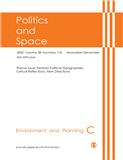
Environment And Planning C-politics And Space
中科院 2區(qū) JCR Q2
大類:社會學(xué)
-
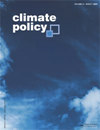
Climate Policy
中科院 1區(qū) JCR Q1
大類:社會學(xué)
-
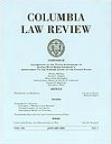
Columbia Law Review
中科院 2區(qū) JCR Q1
大類:社會學(xué)
-
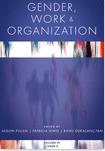
Gender Work And Organization
中科院 1區(qū) JCR Q1
大類:社會學(xué)
-
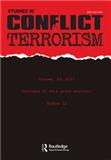
Studies In Conflict And Terrorism
中科院 3區(qū) JCR
大類:社會學(xué)
-
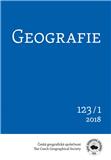
Geografie-sbornik Cgs
中科院 4區(qū) JCR
大類:社會學(xué)
熱門期刊推薦
-
Humanities And Social Sciences Communications
中科院 2區(qū) JCR
-
Electoral Studies
中科院 2區(qū) JCR Q1
-
Journal Of Human Development And Capabilities
中科院 3區(qū) JCR Q3
-
Land Use Policy
中科院 1區(qū) JCR Q1
-
Asian Perspective
中科院 3區(qū) JCR Q2
-
Technology In Society
中科院 1區(qū) JCR Q1
-
Child & Family Social Work
中科院 3區(qū) JCR Q2
-
Social Indicators Research
中科院 2區(qū) JCR Q1
